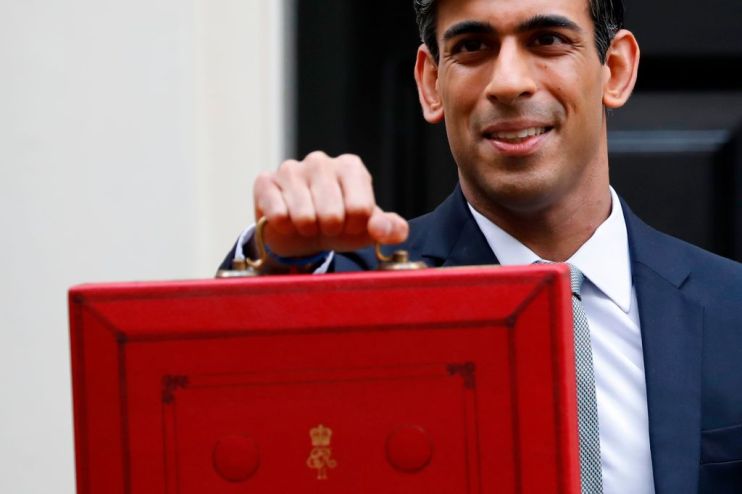Budget 2020: Rishi Sunak gives economy £30bn boost amid coronavirus outbreak

Chancellor Rishi Sunak has announced a £30bn stimulus package to support the UK economy through the coronavirus outbreak in the biggest spending spree in almost 30 years.
Sunak – who was made chancellor last month – said it was one of the most comprehensive responses to the outbreak by any government. The plan earmarks £12bn to directly tackle the coronavirus fallout, with £18bn of other extra spending also announced.
The chancellor unveiled a three-point plan that will make money available for the NHS, businesses, and households. His announcements follow weeks of economic fallout as the number of confirmed cases in the UK rose to 382, with six deaths.
Sunak said coronavirus will have “a significant impact on the UK economy” as consumers self-quarantine and offices and factories close. But he added: “It will be temporary.”
“We are doing everything we can to keep this country and our people healthy and financially secure,” he said.
Chancellor cancels business rates for small firms
Among the key coronavirus policies Sunak unveiled was the abolition of business rates for small firms for a year.
“Over the next twelve months, nearly half of all business properties in England will not pay a penny of business rates,” Sunak said.
Smaller businesses which pay no rates will receive a £3,000 cash grant, at a cost to the government of £3bn.
Sunak also announced a “coronavirus business interruption loan scheme”, through which banks will offer loans of up to £1.2m to small and medium-sized firms.
He said he will relieve the cost of sick pay for employers amid the outbreak. The government will now refund the cost of providing statutory sick pay (SSP) to employees for up to 14 days.
Support for the self-employed and gig economy workers
Sunak said the government will make it easier for those who are self-employed or work insecure jobs to receive support.
Those on contributory employment and support allowance will be able to claim from day one instead of day eight.
The chancellor will temporarily remove the minimum income floor in universal credit, and create a £500m “hardship fund” for local authorities to distribute to those in need.
“Taken together, the extraordinary measures I have set out today represent £7bn to support the self-employed, businesses and vulnerable people,” he said.
NHS to receive the ‘millions or billions’ it needs
Sunak also used the Budget to ramp up the amount of money available to the NHS while it battles the virus outbreak, setting aside a £5bn emergency response fund for health and other public services.
Yet the chancellor said the NHS will receive as much money as it needs, “whether it’s millions of pounds or billions of pounds”.
The statement of intent makes it likely that health service will receive a significant portion of the £30bn stimulus earmarked to tackle the virus.
Two-pronged approach from government and Bank of England
The Budget came just hours after the Bank of England slashed interest rates back to record-low levels to support lending and spending amid the Covid-19 outbreak.
Sunak said the government’s response is being “clearly and closely coordinated with the Bank of England”.
The Bank also unveiled a “term funding scheme” that will provide cheap money to banks for four years, with extra available for those that increase lending.
‘Box-office Budget’ one of the biggest in recent history
The UK’s budget watchdog said Sunak’s spending spree was the “largest Budget giveaway since 1992”.
The Office for Budget Responsibility (OBR) said it will add £125bn to the public debt by 2024-25, marking the moment the Conservatives turned their back on debt reduction and made a decisive break with the austerity of the last ten years.
Jonathan Geldart, director general of the Institute of Directors, said: “This was a box-office Budget. Given the circumstances, the chancellor had to be bold, and he came through for business today.”
“With the coronavirus outbreak threatening a cashflow crunch, measures to cut costs and support loans to businesses are on the money,” he said.
However, not everyone was impressed by the extra money. The free-market Adam Smith Institute think tank said that “spending like a drunken sailor” will not create sustainable growth.
Get the news as it happens by following City A.M. on Twitter.